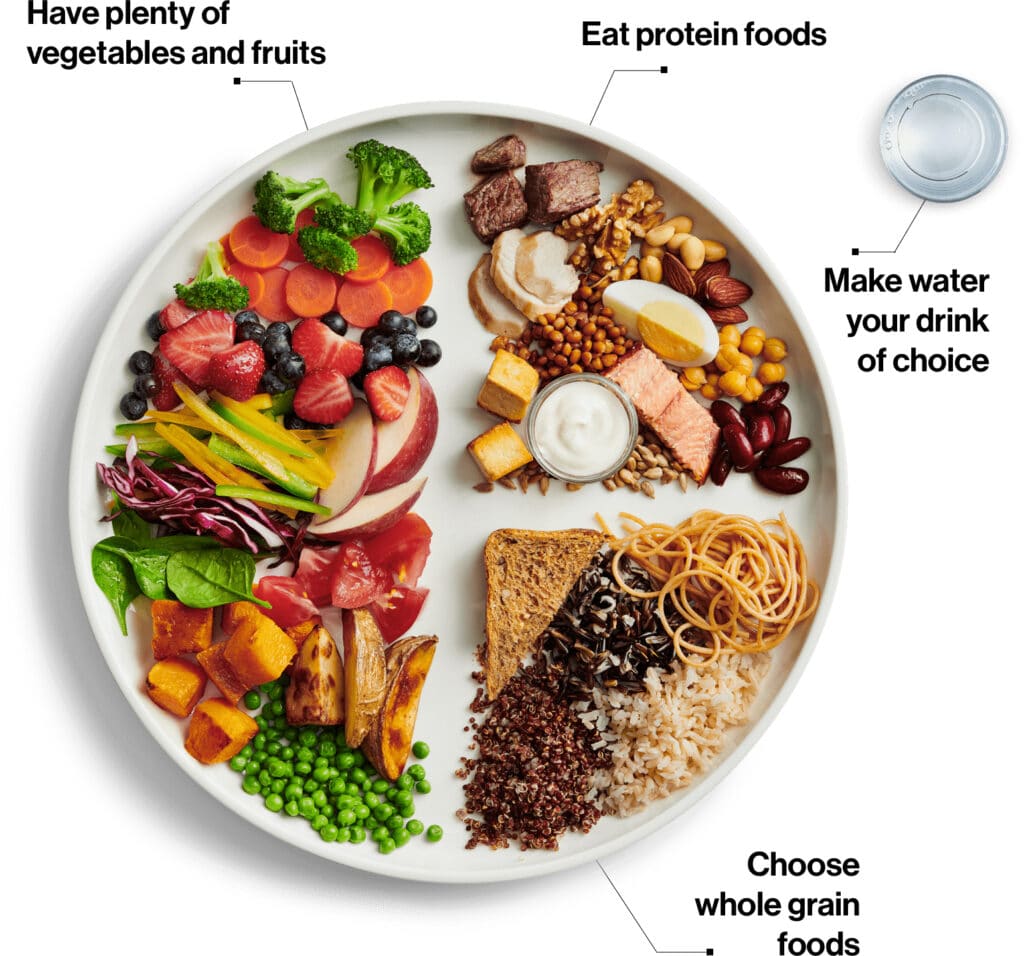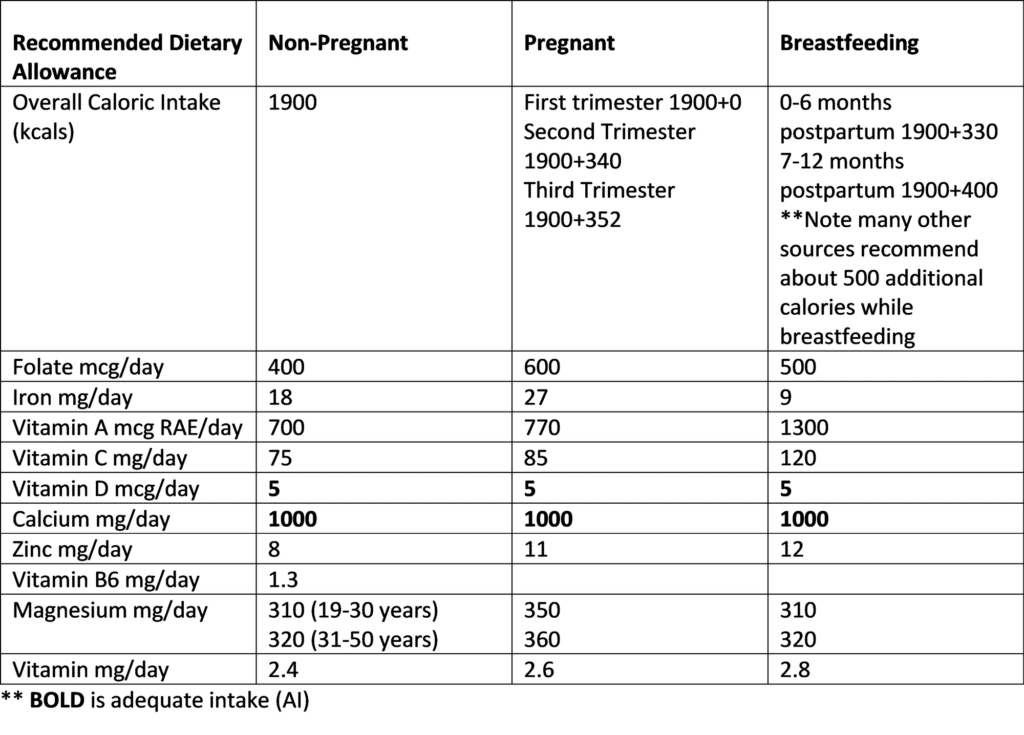Many new parents wonder about what they should eat during breastfeeding. Is it safe to diet? Do we need to eat well to have quality milk? What is the optimal nutrition while breastfeeding?
As a Certified Breastfeeding Counselor (CBC) you are not a registered dietician and thus you do not need extensive nutrition knowledge. However, it is important you be aware of basic nutrition information. Many clients will have heard plenty of myths about nutrition while breastfeeding.
Having up-to-date information about nutrition can help you best support your clients. Here are some important things to know about nutrition while breastfeeding:
General Nutrition Recommendations
The International Doula Institute is based in the United States. However, our students are international, and thus we look at a variety of guidelines. Nutrition recommendations can vary slightly country to country.
We personally find the daily recommendations from Canada to be easy to understand, healthy, and easy to accommodate a variety of dietary needs. During breastfeeding, the base of one’s diet should resemble general nutrition recommendations.
As you can see, the Canadian recommendations encourage a varied diet high in whole foods.

When making a meal, about 50% of the plat should be made up by vegetables and fruit. In the US, they also recommend about 50% of your plate be made up by vegetables and fruit. Fruit is healthy but it does contain natural sugars. For someone watching sugar intake, they may want to have a bit more vegetables than fruit.
About a ¼ of one’s plate should be grains, preferably all whole grains. The US recommends at least half of one’s grain intake be whole grains. Finally, a ¼ of the plate should be protein. These do not need to be animal-based proteins, nuts and legumes are excellent sources of protein.
The US recommends dairy for getting calcium. Canada does not specifically list dairy on their plate, but it is important to get calcium. It is very possible to get adequate calcium without drinking dairy. However, plenty find dairy to be an easy source.
These are general nutrition recommendations. For those who are vegan, vegetarian, have food allergies, etc., the guidelines can easily be filled with food which fits into their dietary needs. For those attempting diets such as keto, low carb, etc., they would want to talk to a registered dietician to ensure they are meeting all their nutrition needs.
Daily Nutrient Needs
In addition to macro nutrition mentioned above, there are important micronutrient needs each day. This can vary based on pregnancy status and lactation. Many providers recommend their clients continue to take a prenatal vitamin during lactation. Other providers may recommend supplementing only specific nutrients.
Clients should reach out to their healthcare provider or a registered dietician if they have questions about specific vitamins and supplements.
As a CBC, however, you can provide the general recommendations for daily nutrition. Providing clients with this information can help them make informed decisions about their dietary needs.

What Do Clients Need to Know About Nutrition?
The most important thing you should educate clients about is that their milk will be perfect for their baby regardless of their diet. Yes, nutrition can impact many areas, but the human body makes human milk perfectly for human babies. Unless the parent is facing ongoing nutrient deficits, similar to pregnancy, the body pulls to provide for baby.
However, this means that if one has a poor diet during pregnancy and lactation, their body will suffer. And certainly, their body is just as important as baby’s! For this reason, good nutrition is recommended to aid in healing from pregnancy, her health, and her overall function.
It is also beneficial for her to talk to the baby’s pediatrician if there are any additional concerns such as vitamin D supplementation (recommended for most babies), anemia, etc.
Generally, the nutrition a mother consumes during pregnancy and lactation benefits her health which in turn can support baby better. However, unless there are extenuating circumstances, there is no reason to assume she should switch to formula if her diet isn’t ideal. We do not currently have evidence supporting formula use as better than breastmilk based on a mother’s diet.
How Do I Support Clients?
Many CBCs are also birth and postpartum doulas. If you have additional qualifications, you can offer meal support and education. You can also provide meal planning support with ideas for easy meal planning.
Be sure to read Nutrition For The Postpartum Doula to learn more.